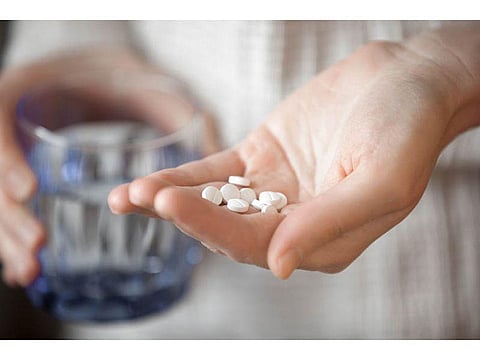WEDNESDAY, Feb. 23, 2022 (HealthDay News) -- Ivermectin treatment during early illness does not prevent progression to severe disease for high-risk patients with mild-to-moderate COVID-19, according to a study published online Feb. 18 in JAMA Internal Medicine.
Steven Chee Loon Lim, M.R.C.P., from Raja Permaisuri Bainun Hospital in Perak, Malaysia, and colleagues examined the efficacy of ivermectin for preventing progression to severe disease among high-risk patients with COVID-19 between May 31 and Oct. 25, 2021. Patients aged 50 years and older with laboratory-confirmed COVID-19, comorbidities, and mild-to-moderate disease were enrolled within the first week of symptom onset and were randomly assigned to receive either oral ivermectin daily for five days plus standard of care or standard of care alone (241 and 249 patients, respectively).
The researchers found that 21.6 and 17.3 percent of patients in the ivermectin and control groups progressed to severe disease (relative risk, 1.25; 95 percent confidence interval, 0.87 to 1.80; P = 0.25). No significant differences were seen between the groups for any of the prespecified secondary outcomes (mechanical ventilation, intensive care unit admission, and 28-day in-hospital death). Diarrhea was the most common adverse event reported (5.8 and 1.6 percent in the ivermectin and control groups, respectively).
"We found no evidence that ivermectin was efficacious in reducing the risk of severe disease," the authors write. "Our findings are consistent with the results of the IVERCOR-COVID19 trial, which found that ivermectin was ineffective in reducing the risk of hospitalization."
Abstract/Full Text


